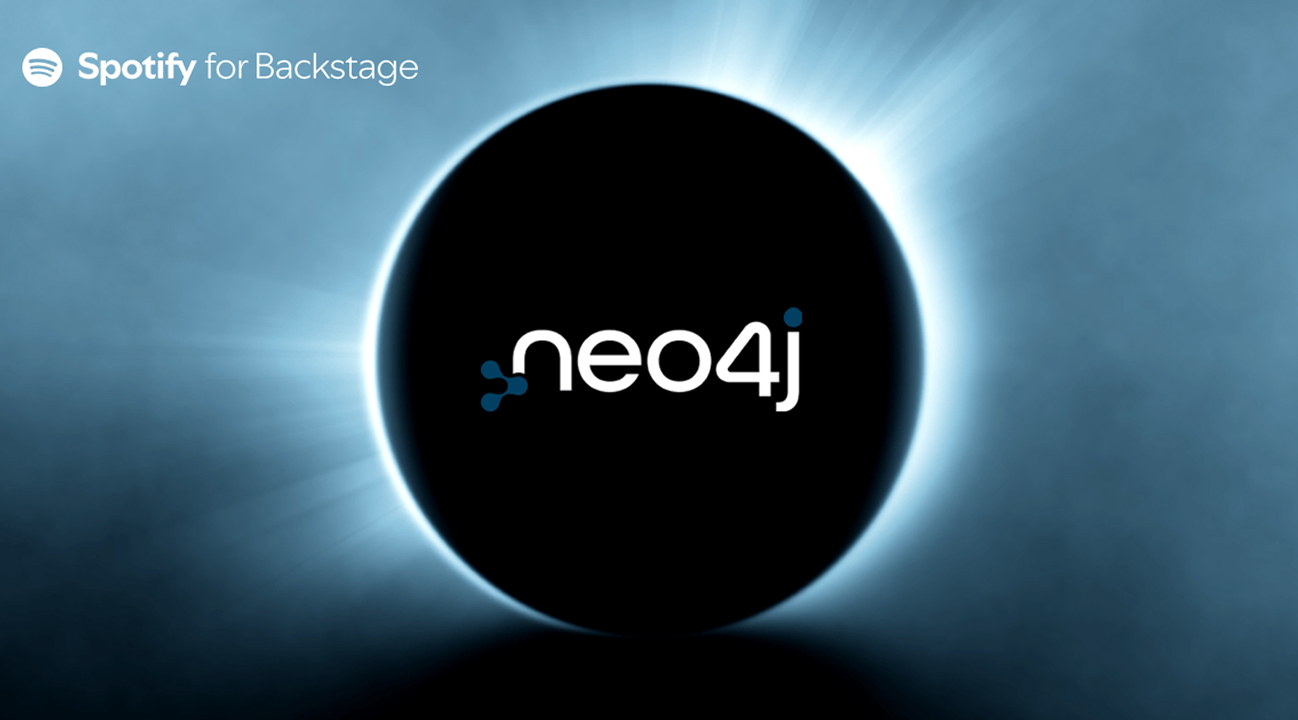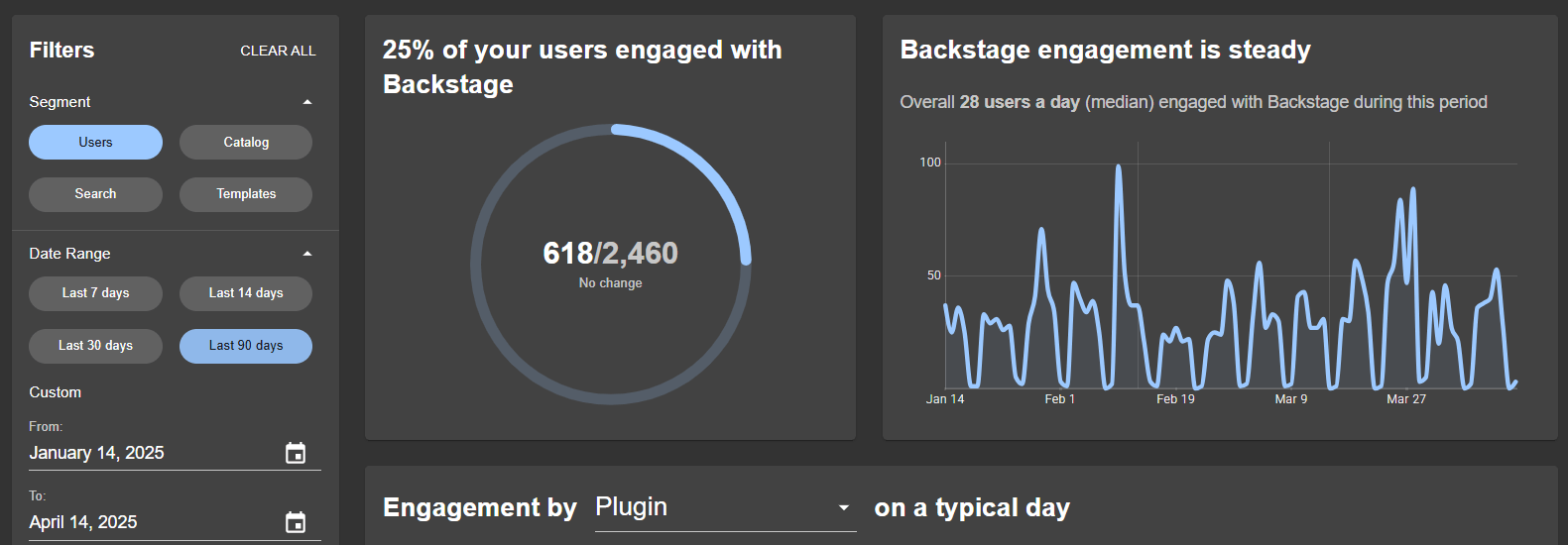How The Access Group continually evolves their Backstage IDP with help from Spotify’s Insights plugin

Heading 1
Heading 2
Heading 3
Heading 4
Heading 5
Heading 6
Lorem ipsum dolor sit amet, consectetur adipiscing elit, sed do eiusmod tempor incididunt ut labore et dolore magna aliqua. Ut enim ad minim veniam, quis nostrud exercitation ullamco laboris nisi ut aliquip ex ea commodo consequat. Duis aute irure dolor in reprehenderit in voluptate velit esse cillum dolore eu fugiat nulla pariatur.

Block quote
Ordered list
- Item 1
- Item 2
- Item 3
Unordered list
- Item A
- Item B
- Item C
Bold text
Emphasis
Superscript
Subscript
tl;dr Business management software provider The Access Group continually adds value to their products and services through strategic acquisitions that give customers access to a global network of experts across various industries. But what happens when you’re constantly faced with integrating new teams and engineering orgs, each with their own diverse tech stacks? How do you standardize when top-down approaches aren’t an option? Instead of a “one size fits all” approach, The Access Group’s solution was to adopt a platform that could continually adapt and evolve. And Spotify Enterprise Support and the Insights plugin helped them guide their way.
About The Access Group
Global business management software provider
Founded: 1991, United Kingdom
Company size: 8,000+ employees
Engineering org: 2,500+ developers
Backstage plugins: Insights, Tech Radar, Soundcheck, Qeta
Backstage instance name: Nexus
A global leader that continues to grow
The Access Group provides software solutions that empower more than 160,000 small and mid-sized organisations in commercial and non-profit sectors across the UK, Europe, Asia Pacific, and the USA. These solutions give every employee the freedom to do more of what’s important to them.
The problem: Growth brings complexity (especially through acquisitions)
As organisations grow, especially through acquisitions, the diversity of tools and workflows increases. While teams within a single product often share the same tooling, cross-product collaboration is usually much harder.
We regularly experience this firsthand at Access, where we serve our enterprise customers by continually growing our products and services through strategic acquisitions and product innovation. Since 2020, we’ve acquired over 60 software providers across health, hospitality, human resources, payments, finance, marketing, and a dozen other industries.
A common approach to solving this fragmentation is to try to migrate everyone to a central tool. But this comes with costs:
- Migrations slow down meaningful work that delivers core value to users.
- The transition requires significant planning and execution time, pulling engineers away from product development.
- Out-of-the-box solutions don’t fit organisations that are constantly evolving and growing.
A traditional approach would have introduced more resistance
The instinctive response to this complexity is often top-down mandates: centralising technology choices, enforcing common processes, and rolling out a single "one-size-fits-all" solution.
But in reality, large-scale organisations, especially those growing through acquisitions, don’t work like that. The key isn’t to force compliance, it’s to build alignment through shared value.
We needed an approach that would naturally bring teams together, creating a unified, scalable developer experience without disrupting their existing ways of working.
The approach: Growing platform engineering as a product, not a policy
Rather than enforcing a rigid framework, we took a different approach: We built an internal developer platform that developers, architects, and leadership would voluntarily engage with.
This meant shifting the question from “How do we make everyone use this?” to “How do we create something so valuable that teams want to use it?”
Spotify’s Enterprise Support helped us shape this approach and provided guidance throughout our adoption journey by helping us plan the implementation and sharing case studies of successful adoption stories.
1. Leadership as influencers, not enforcers
Instead of issuing directives, with strategic messaging and demos, leadership became advocates championing the internal development portal (IDP) because they saw the value.
By demonstrating how it removes pain points in driving initiatives and fostering collaboration — and positioning the IDP as something we build together as an organisation — leadership began to advocate for the vision.
2. A social-technical approach, not just a technical one
Scaling efficiently isn’t just about the right tooling, it’s about the right culture. We designed our IDP to support:
- Knowledge sharing — so developers don’t have to reinvent the wheel.
- Visibility of work — so contributions are recognised across teams.
- Seamless integration — so teams can keep their autonomy while benefiting from a unified ecosystem.
To make this possible, we created technical and non-technical engagement points, a platform where developer contributions could be seen, discussed, and improved upon.
3. Inner sourcing: Let developers own the platform
For platform engineering to scale, teams need to feel ownership over it. That’s why we embraced inner sourcing, where developers contribute, improve, and shape the platform to fit their needs.
4. Building instead of buying: A strategic choice
We considered purchasing a seven-figure SaaS tool as our internal knowledge-sharing platform. Instead, we took a different approach:
- We integrated an open source Qeta plugin.
- We can shape the plugin, allowing other teams to contribute and extend it.
- This was a cost-effective approach as it resulted in a potential seven-figure saving.
This decision wasn’t just about cost savings, it was also about creating a platform that fits our culture and could grow with us.
As our Backstage IDP became a more established part of our engineering organization, we gave it a new name — Nexus — representing the platform’s guiding principle: “The only way through is together.”
The growth story: Spotify’s Insights plugin shows 20% month-over-month adoption

We rely on Spotify’s Insights Plugin for Backstage to help us measure our progress with usage metrics and sentiment data. Since launching our platform engineering approach, we’ve seen:
- Consistent ~20% growth in active users each month
- Buy-in from most of the architects across most software companies in the Group
- Leadership actively promotes the platform and integrates it into their workflows
Although other things took priority at the start, it became necessary to get better insights into our user behaviour. This is where Insights came in handy.
We also continue to leverage Spotify’s expertise and experience through their Enterprise Support services. It’s not just tech support, it’s like having another member of the team.
Final thoughts: A platform that evolves with you
For organisations in constant motion — whether through growth, acquisition or adaptation — rigid tooling choices can introduce more challenges than they solve, and even slow down innovation.
By treating platform engineering as a product, we create an internal developer portal that fits the organisation, rather than forcing the organisation to fit a particular platform.
When teams own, contribute to, and shape the platform themselves, the result isn’t just efficiency; it’s an engineering culture directed towards shared success.
Michael Ajijola is a solutions architect at The Access Group. He has expertise in cloud infrastructure, process optimisation and automation, system monitoring, and aligning technology solutions with business goals. He also has unique skills and experience in getting into a nightclub.
The Insights plugin is part of the Spotify Plugins for Backstage bundle subscription, it also comes built into Spotify Portal for Backstage. Spotify Enterprise Support provides both support and consulting services for Backstage adopters.
